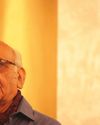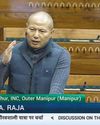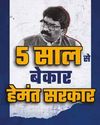
On 7 April 2022, the union home minister, Amit Shah, while speaking at a meeting of parliament’s official-language committee, described Hindi as “the language of India.” He said that Hindi, an official language, should become an “important part of the unity of the country.” When speakers of different languages in India converse with each other, he added, “it should be in the language of India” and, in keeping with this spirit, Prime Minister Narendra Modi used Hindi for running the government. Shah suggested that Hindi, rather than indigenous languages, should take the place of English. He announced that all eight north-eastern states had agreed to make Hindi compulsory up to the tenth standard and had recruited over twenty thousand Hindi teachers.
This was not the first time that the home minister had announced the government’s intention to impose Hindi upon those who do not speak the language. “Every language has its own importance, but it is very important to have a language of the whole country which should become the identity of India globally,” Shah said on the Hindi Divas in 2019. “Today, if a language can keep the country united, it is the spoken language, Hindi.” That year, the Modi government also pushed for Hindi to become compulsory as part of its draft National Education Policy, eventually dropping the clause after massive protests.
This story is from the July 2022 edition of The Caravan.
Start your 7-day Magzter GOLD free trial to access thousands of curated premium stories, and 9,000+ magazines and newspapers.
Already a subscriber ? Sign In
This story is from the July 2022 edition of The Caravan.
Start your 7-day Magzter GOLD free trial to access thousands of curated premium stories, and 9,000+ magazines and newspapers.
Already a subscriber? Sign In

HOW TO SEE ART?
BN Goswamy's strategies of seeing

Bitter Crop
Ghana's cacao plantations in crisis

SURVEYORS OF DESTRUCTION
An atmosphere of fear persists in the wake of the Sambhal violence

SITE OF DECEIT
HOW THE ASI FORTIFIES HINDUTVA HISTORY

The Broken Pact
Minority legislators rue the erosion of the Constitution under the Modi government/

Hate by Proxy
How shadow accounts on Meta spread BJP propaganda in Jharkhand

Mob Mentality
How the Modi government fuels a dangerous vigilantism

RIP TIDES
Shahidul Alam’s exploration of Bangladeshi photography and activism

Trickle-down Effect
Nepal–India tensions have advanced from the diplomatic level to the public sphere

Editor's Pick
ON 23 SEPTEMBER 1950, the diplomat Ralph Bunche, seen here addressing the 1965 Selma to Montgomery March, was awarded the Nobel Peace Prize. The first black Nobel laureate, Bunche was awarded the prize for his efforts in ending the 1948 Arab–Israeli War.